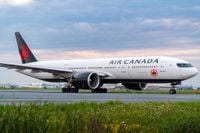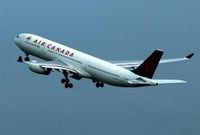Air travel in Canada was thrown into turmoil this August when Air Canada’s 10,000 flight attendants, represented by the Canadian Union of Public Employees (CUPE), walked off the job in a three-day strike that brought the country’s largest airline to a standstill. The disruption, which began in mid-August and ended on August 19, 2025, left travelers scrambling for alternatives—and ignited a fierce debate over workers’ rights, government intervention, and the future of airline labor relations.
Now, as Air Canada’s full fleet has returned to service and the dust begins to settle, the focus shifts to the next chapter: a pivotal ratification vote on a mediated contract that ended the strike. From August 27 until September 6, flight attendants will decide whether to accept the tentative agreement or send the wage portion to arbitration. The outcome could shape not only their paychecks but also set a precedent for labor negotiations across the Canadian airline industry.
According to The Globe and Mail, the union’s message to its members was clear: accept the deal, as Air Canada refused to move on wages during negotiations, and even a mediator was unable to budge the airline. The contract, while ending the immediate labor dispute, has left some flight attendants feeling shortchanged—especially when compared with the hefty raises secured by Air Canada pilots last year.
The numbers are stark. Under the new agreement, most junior flight attendants would see a 12 percent salary increase in 2025, while more senior members would get an 8 percent bump. Across the board, all members would receive a 3 percent raise in 2026, followed by 2.5 percent in 2027, and 2.75 percent in 2028. For some, these gains pale in comparison to the 26 percent increase pilots received in the first year of their contract and a cumulative 42 percent raise over four years negotiated by the Air Line Pilots Association (ALPA) last year.
But the contract wasn’t just about annual raises. One of the most celebrated victories, according to CUPE Senior Communications Officer Hugh Pouliot, was the improvement in ground pay—a longstanding point of contention. “This labour action achieved two things: a significant increase in the employer’s offer on ground pay, which will become the best ground pay in North America by the end of the contract,” Pouliot told TravelPulse Canada. He added, “and a clear signal to the federal government to stop interfering on behalf of the bosses to poison collective bargaining in Canada.”
The new contract stipulates that flight attendants will be compensated for ground time at half their hourly wage rate for 60 minutes on narrow-body aircraft and 70 minutes on wide-body planes. That figure will rise to 60 percent of the hourly wage in April 2026, 65 percent in 2027, and 70 percent in 2028. For workers who have long performed unpaid labor on the ground—preparing cabins, assisting passengers, and handling safety checks—this change is seen as a major step forward.
Not everyone is satisfied, however. Some flight attendants argue that the wage increases simply don’t measure up to those won by other airline employees, and that the government’s intervention—invoking section 107 of the labour code to order them back to work—undermined their bargaining power. “The Canadian labour movement owes Air Canada flight attendants an enormous debt. Facing the government down took tremendous courage. Workers across industries can look to this example for inspiration,” wrote The Maple, reflecting the broader significance of the dispute.
The frustration is palpable among some union members. In a letter addressed to Air Canada passengers and Canadians at large, Henly Larden, a flight attendant and Vice President of CUPE 4094, didn’t mince words: “The frustration persists because we cannot ignore the fact that our voices - individual and collective - were stifled by our company and by the government that is meant to represent us, not repress us.” Larden thanked Canadians for their support and vowed to continue the fight: “What is clear to me, and to many of my colleagues, is that our struggle to be recognized is not over. Unpaid work is not over. We have made important progress, but our job is far from done. Although we will not be returning to a picket line this year, we will continue pushing those responsible for putting us in our current predicament and the ones with the power to change it: the government of Canada. We will continue this fight, with public rallies and political lobbying. But in order to be successful, we still need the support of you – our passengers.”
For travelers, the strike’s impact was immediate and costly. With Air Canada’s operations shut down, passengers were left to fend for themselves—booking new flights, securing hotels, and arranging alternate transportation at their own expense. According to TravelPulse, Air Canada has committed to reimbursing affected travelers for “reasonable” out-of-pocket costs, but the process is not always straightforward. Many passengers will turn to travel insurance to cover additional expenses, but as insurance firm Squaremouth cautions, coverage depends on the policy’s details and when it was purchased. Most plans only cover “unexpected” strikes, not those that were already known or reported in the media at the time of purchase.
“A majority of travel insurance plans will cover unexpected strikes that cause interruption, cancellation, or extended delays,” said Christina Tunnah, head of the Americas for World Nomads Travel Insurance. “It’s important to note that coverage will not apply if the strike was a known event when you purchased your plan.” She advises travelers to save all documentation, including boarding passes, receipts, and communications with the airline, to make the reimbursement process smoother. “The more you can provide, the easier of a time you will have navigating the reimbursement process.”
Before turning to their insurance providers, passengers are encouraged to seek solutions with the airline first—whether that means rebooking, requesting refunds, or accepting vouchers. Only after exhausting those avenues should they file claims with their insurer for costs not covered by Air Canada. Insurance may also help cover prepaid, non-refundable activities missed due to travel delays, but travelers should check their policy for specifics before relying on that safety net.
As the ratification vote proceeds, the outcome remains uncertain. If the membership votes no, the wage portion of the tentative agreement will be referred to arbitration, while all other items—including the new ground pay provisions—are final, according to CUPE’s Hugh Pouliot. The union’s leadership has urged members to accept the deal, but the sense of unfinished business lingers.
For the broader Canadian labor movement, the Air Canada strike has already left its mark. It was a rare instance of workers challenging both their employer and the government in a high-stakes showdown. As The Maple put it, the courage displayed by flight attendants “can look to this example for inspiration.” Whether the contract is ratified or sent to arbitration, the events of August 2025 will be remembered as a turning point in the ongoing struggle for fair compensation, respect, and recognition in the skies—and on the ground.
As passengers seek reimbursement, flight attendants weigh their next steps, and the airline industry watches closely, one thing is certain: the story isn’t over yet.


